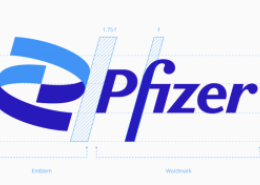International Structural Genomics Consortium Announces $48.9 MILLION in Additional Funding to Continue the Search for New Medicines
Consortium also Welcomes Two New Member Companies
The international Structural Genomics Consortium (SGC) today announced $48.9 million in new funding has been attained. This renewed investment will allow the SGC to further develop its open access research program to support drug discovery and the development of new medicines. The announcement comes as the SGC on June 30 successfully completed its second phase of funding (2007-2011).
Formed in 2004, the SGC is supported by public and private sector funding and all of its findings are made available to the global research community without restriction. Since its inception, the SGC has contributed more than 1,300 high quality three-dimensional protein structures to the public domain. The wealth of structural information generated by the SGC may impact human health by providing research reagents/protocols and robust frameworks for structure-guided discovery of new medicines for cancer and diabetes, among other diseases and disorders.
New members of the consortium are Eli Lilly Canada and Pfizer Inc. The other consortium funders comprise the Canadian Institutes for Health Research, GlaxoSmithKline, the Novartis Research Foundation, the Ontario Ministry of Research and Innovation, and the Wellcome Trust. Together, these organizations have committed nearly $50 million to the consortium to sustain another four years of operation. Furthermore, in a novel paradigm for open-access research, the four pharmaceutical company partners will provide more than $9 million worth of in-kind contributions, primarily medicinal chemistry resources, for collaborative discovery of chemical tool compounds that target disease-linked proteins. The SGC will continue to operate from its founder laboratories at the University of Oxford in the United Kingdom and the University of Toronto in Ontario, Canada as well as benefit from an extensive network of expert scientific collaborators worldwide.
"I want to thank the SGC team for a job well done over the past eight years, and our partners for their enduring support. We are very happy to welcome Eli Lilly Canada and Pfizer as partners,” said Professor Aled Edwards, the SGC Chief Executive.
“CIHR is proud of the achievements of the SGC as an outstanding example of a successful international partnership involving both the public and private sectors,” said Paul Lasko, Scientific Director, Institute of Genetics, Canadian Institutes of Health Research. “SGC is at the forefront of extending open-access paradigms, which have proven their value in helping to catalyze the IT revolution, to the development of novel therapeutics.”
The SGC scientific program for 2011-2015 continues with a strong protein structure determination effort, while broadening its reach with two innovative new programs focused on epigenetic phenomena. Epigenetics refers to heritable changes in gene function that occur without changes in the underlying DNA sequence. Alterations in these processes are linked to many common diseases, and there is broad agreement that a better understanding of epigenetics may eventually yield new approaches to diagnosing and treating a number of important diseases.
Building on successful pilot projects, these new SGC research activities will facilitate drug discovery by generating renewable antibodies against human proteins and discovering chemical tool compounds that block the action of specifically targeted human proteins. These efforts critically depend on the SGC's strengths in producing high-quality proteins and protein structure determination. Going forward, the antibody and chemical tools projects will focus on proteins implicated in epigenetic mechanisms of disease. Our current understanding of epigenetics is not 2 well advanced, and the availability of such reagents is expected to have great impact on this emerging area of biology. Importantly, SGC antibody and chemical tool reagents will be made available to the worldwide research community on an open access basis.
“Epigenetics is one of the fastest growing areas in science today, and through the work being conducted under the SGC, with contributions from Lilly Canada, we will be able to combine our resources and expertise to rapidly search for and discover potential new medicines,” said Stephen K. Burley, Distinguished Research Scholar at Lilly. “Lilly looks forward to a strong and productive relationship with the SGC and its partners in many different areas of research for the benefit patients and their families.”
Anthony Wood, Senior Vice President, Worldwide Medicinal Chemistry at Pfizer, said, “Pfizer is pleased to join phase III of the SGC collaboration. We are impressed by the track record, scientific standards and broad collaborative network of the SGC and are looking forward to contributing our medicinal chemistry expertise to further accelerate research in the field of epigenetics.”
“This promising initiative will speed innovation and help reduce the cost of bringing new medicines to patients,” said Bernard Munos, Founder, InnoThink Center for Research in Biomedical Innovation. “Sharing knowledge and costs helps everyone be smarter and faster, thus making it easier to design better medicines. It's a win-win, and SGC has been a pioneer in this movement."
Contacts
Aled Edwards
CEO
The Structural Genomics Consortium
T: +1 416 3578 724
E: aled.edwards@utoronto.ca
Johan Weigelt
Associate Director
The Structural Genomics Consortium
T: +46 70 263 0255
E: johan.weigelt@thesgc.org
Notes for editors
The Structural Genomics Consortium (SGC) was formed in 2004 and is a registered UK charity (number 1097737) engaged in open access research of relevance to the science of drug discovery. All research output such as three-dimensional structures of proteins of medical importance, and chemical tool compounds to probe protein function, is placed in the public domain without restriction.
The SGC’s scientists work out of the University of Oxford, UK and the University of Toronto, Canada. Funding to support the SGC’s work has been received from the Canadian Institutes of Health Research, GlaxoSmithKline, Eli Lilly Canada, the Novartis Research Foundation, the Ontario Ministry of Research and Innovation, Pfizer, and the Wellcome Trust.
More information is available at the SGC website: www.thesgc.org.








